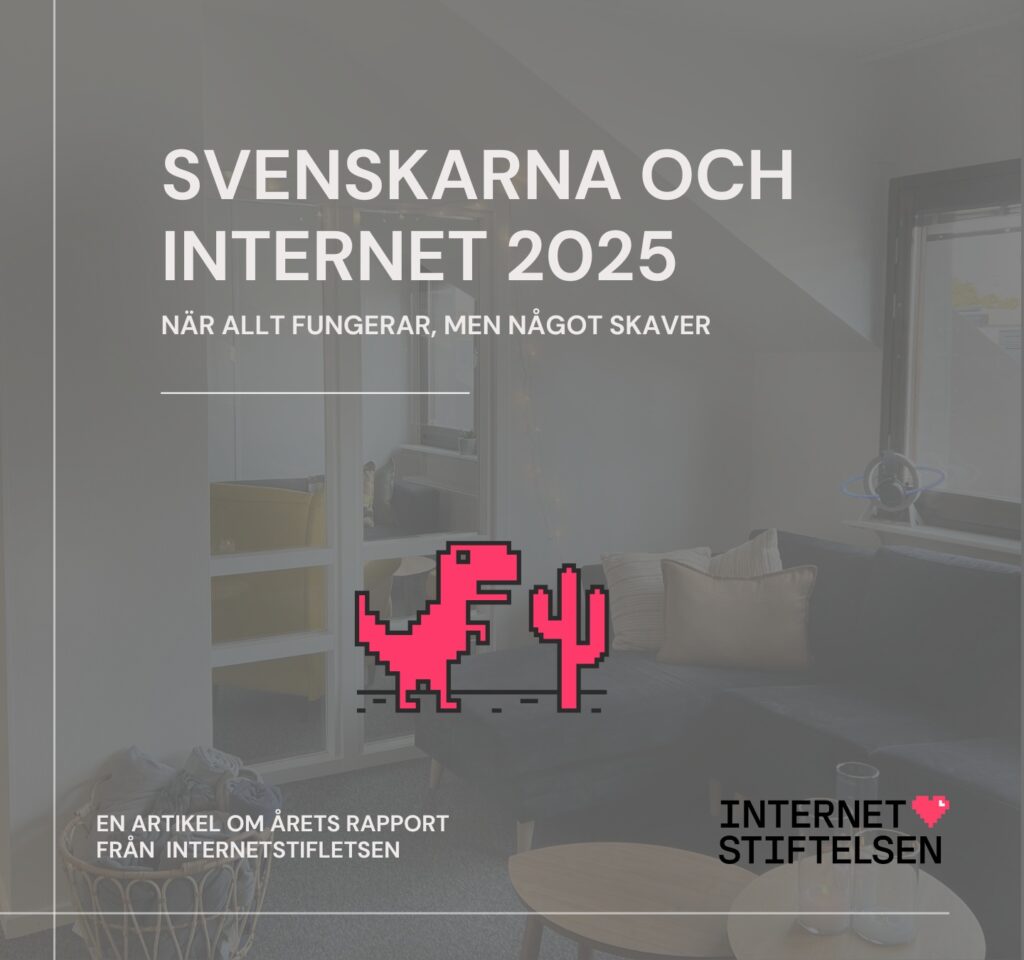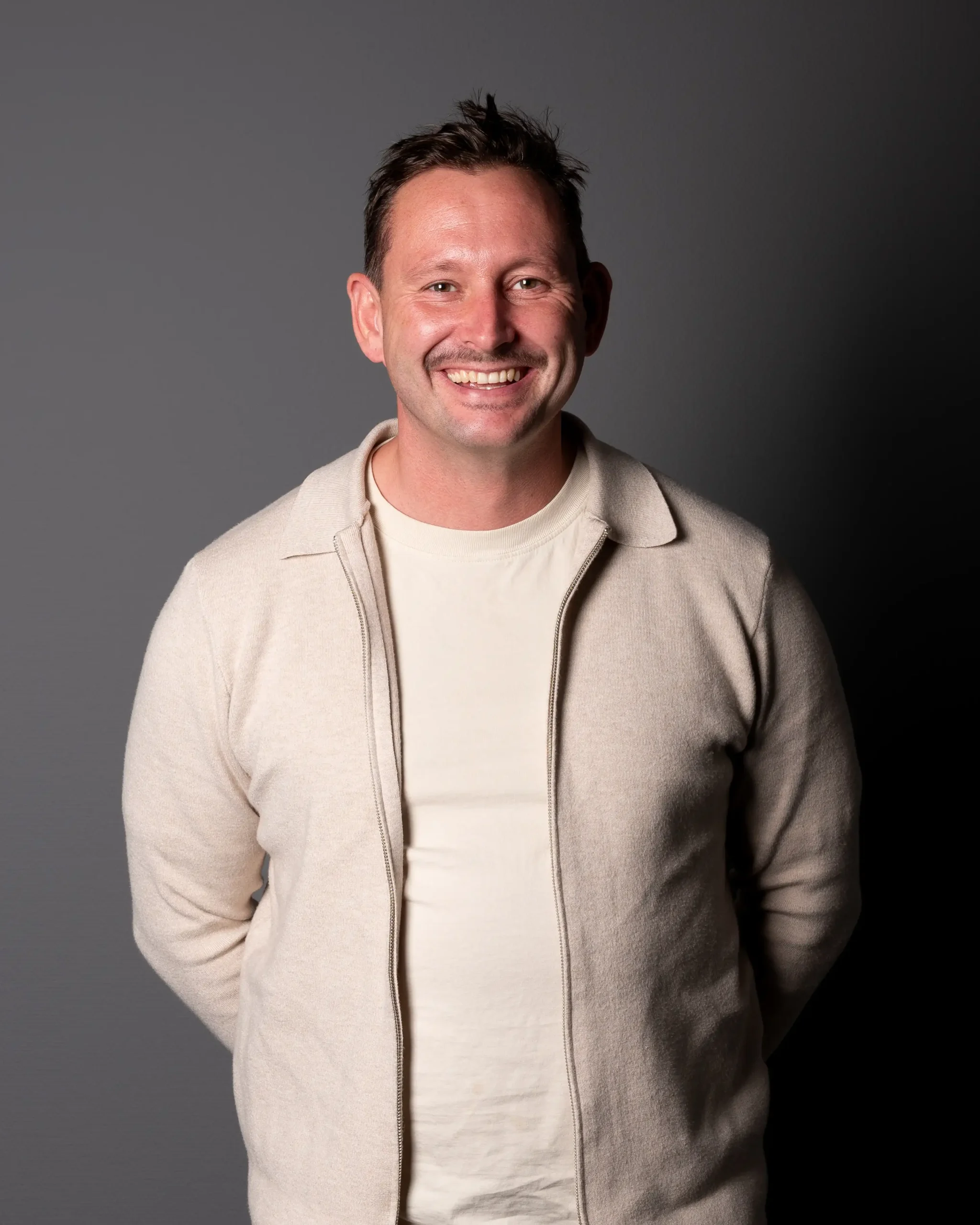The internet works, of course. But do we?
97 percent of Swedes are connected, but far from everyone feels at home in digital life.
This year’s report, Swedes and the Internet 2025, shows a society that is faster, smarter – but also more tired.
These are my reflections on how we really feel in digital Sweden.
There is something fascinating about this year’s report from the Internet Foundation. It not only tells us how we use the internet – but how the internet uses us. We have become a country where 97% of the population is connected. Almost everyone has a Bank ID, almost everyone uses Kivra, almost everyone has a digital mailbox. But the question is no longer who is online. The question is how we feel there.
Digitally engaged – but not always digitally secure
Logging in is easy. Understanding the system behind it is not always so.
For some, every digital contact is a matter of course. For others, it is a struggle against time limits, passwords, apps that need updating, and codes that need to be retrieved. And for many older people, e-services have become yet another reminder that society is moving faster than they are.
We have built a system that requires you to be able to do this—otherwise, you will fall behind.
But in the pursuit of efficiency, we may have forgotten the most fundamental thing:
Digitalization is not just about introducing technology. It is about inviting people in.
When simplicity becomes complicated
A quarter of Swedes say they have at some point refrained from booking a healthcare appointment because the e-service was too complicated.
That says quite a lot.
“It’s difficult to remember how to do everything, and which app is for what.”
That sentence sticks. Because it says something bigger than just frustration.
It says: we have lost sight of the meaning of simplification.
We have put so much energy into making systems efficient that we forgot to make them human.
And somewhere along the way, we replaced “accessible to everyone” with “accessible to those who can manage it.”
Social media: quieter, but still there
We have never had more channels. Yet less than half say they post their own content.
We watch, we like, we scroll.
But we share less and less.
Perhaps it is a fullness.
Perhaps a silent protest against the pace and noise.
Because even though we continue to live in the flow, we seem to have started searching for something else – something that feels real.
Perhaps that is why microplatforms such as Threads and Bluesky are growing. They feel more human. Less optimized. More conversation, less show.
And somewhere in between, between the silence and the flood, we try to find balance again.
Love, control, and maps
Another thing that stands out in the report concerns relationships.
We share location data with our partners. We check where they are. We read their messages “just to see.”
For some, it is consideration. For others, it is concern.
The line is thin.
Digital technology makes relationships both easier and more fragile.
We can meet faster, communicate constantly—but also suspect, compare, and control.
Trust becomes something that must be proven in real time.
And perhaps that is where the internet really affects us—not in technology, but in our emotions.
AI – from trend to everyday life
Four out of ten Swedes have used some kind of AI tool in the past year.
Among young people, the figure is almost double that. ChatGPT leads the way, Copilot is growing, and AI has become a natural part of how we write, plan, and solve problems.
But six out of ten still do not use AI at all. Not because they don’t want to, but because they don’t know how, or don’t trust it.
It is a new kind of knowledge gap: between those who use the technology and those who understand what it means.
We often talk about AI as the future.
But it’s already here – in our emails, in search results, in the apps we use without thinking about it. It’s only when we stop noticing technology that it has truly changed us.
The bluff, the bubble, and the need for trust
More than half of Swedes have seen fake ads online.
Most people do nothing about it. They can’t be bothered, don’t think it will help, or don’t know where to turn.
And perhaps that is the biggest challenge right now:
not disinformation, not platforms, not technology – but resignation.
When we start to feel that our online actions don’t matter, we lose more than money or data.
We lose our digital voice.
In summary
When I read Swedes and the Internet in 2025, I think that we are at a strange turning point.
We are the world leaders in using digital services – but we are beginning to wonder what they actually give us in return. We have become flexible, but not necessarily free.
The internet has become an integral part of our lives, but that doesn’t mean we understand it any better.
We click, log in, sign in, scroll. We communicate faster than ever, but perhaps understand each other a little less.
And maybe that’s exactly where we need to start over.
Not in the technology itself, but in our attitude toward it.
To pause in the middle of the flow and ask: “Why am I doing this?”
Not to question everything, but to find our way back to something we lost along the way: meaning, understanding, direction.
Because if the internet is now a mirror of society, it no longer just reflects our technological capabilities.
It also reflects our fatigue, our curiosity, our concerns—and our longing for things to feel real again.
Perhaps it is there, in that longing, that the next digital revolution begins.
Not with a new app or platform – but with a new kind of awareness.
Sources: Internet Foundation – Swedes and the Internet 2025, as well as related analyses and articles at internetstiftelsen.se/svenskarna-och-internet



